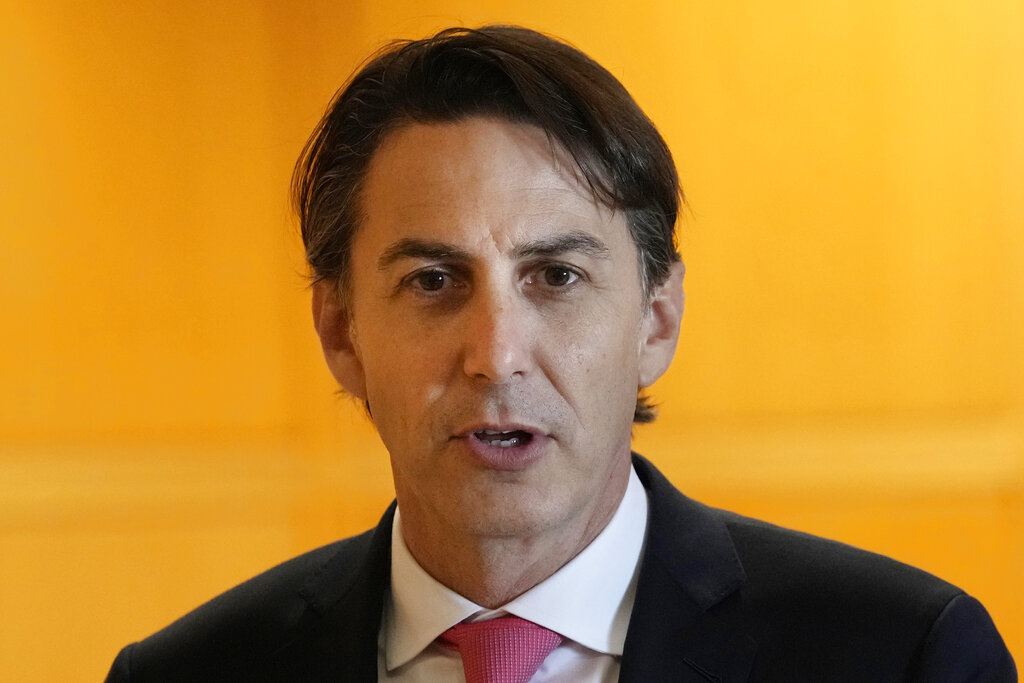Will It Fall to Israel’s Military To Enforce the United Nations Resolution on Hezbollah?
President Biden’s national security adviser wants to try international diplomacy against Hezbollah. It would bring in, among others, the Quai d’Orsay. What’s the logic of that?

Will diplomats push Hezbollah away from the Lebanese-Israeli frontier, or could the Israel Defense Force end up enforcing the United Nations resolution prohibiting Hezbollah from operating at the border?
When the national security adviser, Jacob Sullivan, lands in Israel Thursday, he will likely lean on his hosts to allow American and French diplomats to prevent a widened Gaza war into Lebanon. Yet a daily mortar barrage from southern Lebanon into Israel is intensifying, raising doubts about diplomatic solutions.
Ending in 2006 a month-long war between Israel and Hezbollah, the UN Security Council passed its Resolution 1701. It purported to assure that no armed militia would be present south of Lebanon’s Litani River, located 18 miles north of the Israeli border.
Yet, the resolution lacked teeth. Backed by Iran, Hezbollah, armed with 130,000 missiles, dominates southern Lebanon. With its elite Radwan force it is constantly intimidating residents of the Galilee. It’s one of the most dangerous situations in the Middle East.
“The October 7 Hamas plan to invade southern Israel was identical to Hezbollah’s invasion plan,” the president of Alma, a northern Israel-based think tank, Sarit Zehavi, tells the Sun. “Since October 7, anti-tank rockets have been shot at us daily, along with attack drones and ground infiltration attempts,” she says.
Israel is returning fire at launching sites and Hezbollah targets. One proposed plan reported by Israel’s Channel 12 is dubbed “mini 1701.” Under the scheme, the IDF would capture in southern Lebanon an area up to five miles wide. That is the range of the anti tank rockets that are mostly used against northern Israel.

For now Israel is careful to avoid a major confrontation with Hezbollah. Western diplomats are eager to keep the Gaza war from spreading to Lebanon. Paris, which has sway over Beirut, has dispatched the French foreign minister, Catherine Colonna, to the region.
President Biden’s Mideast adviser, Amos Hochstein, is also shuttling between Beirut and Jerusalem, seeking new border understandings. That’s from the Israeli newspaper Yediot Ahronot. Mr. Hochstein’s plan would entail some Israeli land concessions, including in the strategic Mt. Dov area, in return for pushing Hezbollah away from the border.
Shortly after the October 7 war started, and in the face of shelling from Hezbollah at towns adjacent to the northern border, the Israeli government ordered the evacuation of 60,000 of its citizens. Thousands other residents living slightly farther south have also left their homes. Even if shooting stops, they say they’d fear going back if Hezbollah’s Radwan force remains near the border.
“We prefer a diplomatic solution guaranteeing that Hezbollah is pushed north of the Litani according to resolution 1701,” the Israeli defense minister, Yoav Gallant, told mayors of northern towns during a tense meeting last week. Yet, if diplomacy fails, he added, “the IDF will use all its military power to assure that Hezbollah is pushed back.”
Israelis have long scoffed at the UN resolution and are now even more skeptical. While Resolution 1701 ordered Hezbollah to stay away from the Israeli border, a former IDF general, Israel Ziv, noted on Channel 12 television, “in fact it’s the reverse.” He adds that “we now have 70,000 internally displaced refugees” who are forced away from the Lebanese border.
In 2006, the UN Interim Force in Lebanon, known as Unifil, was beefed up to include troops from several European countries led by experienced military commanders. Its mission was to “assist the Lebanese armed forces” in creating a weapons-free zone south of the Litani.
“We had no illusions that this resolution would resolve our Hezbollah problem,” a former Israeli diplomat who served as deputy UN envoy at the time, Daniel Carmon, tells the Sun. “Yet, it was the best we could get, as American pressured us to end the war.”
Unifil may have even been effective at first. Yet, as Hezbollah increasingly dominated Lebanese politicians and the army, Unifil largely gave up confronting it.
During a recent visit to northern Israel, a correspondent of the Sun could view Hezbollah operatives setting camp across the border right next to a Unifil position. Entering a tunnel dug deeply under the border, a reporter was told the terrorists’ plan was to infiltrate, kill Israelis, and take hostages.
While the IDF detected and neutralized that particular tunnel, residents of the north have long said they could hear sounds of underground digging at night, indicating that mass infiltration, to be executed at the time of Hezbollah and Iran’s choosing, is still being planned.
“Who would go house to house in southern Lebanon to take out the rockets that are hidden there, and who would dismantle the Radwan tunnels?” Ms. Zehavi says. “Unifil? NATO? The U.S. army?”
For now, the IDF concentrates its fire power on Gaza, but as the war intensifies Israel may be forced to address threats in the north and elsewhere by itself. “It is wrong to call this an Israel-Hamas war,” Ms. Zehavi says. “It’s a war on the axis of terror, led by Iran.”

